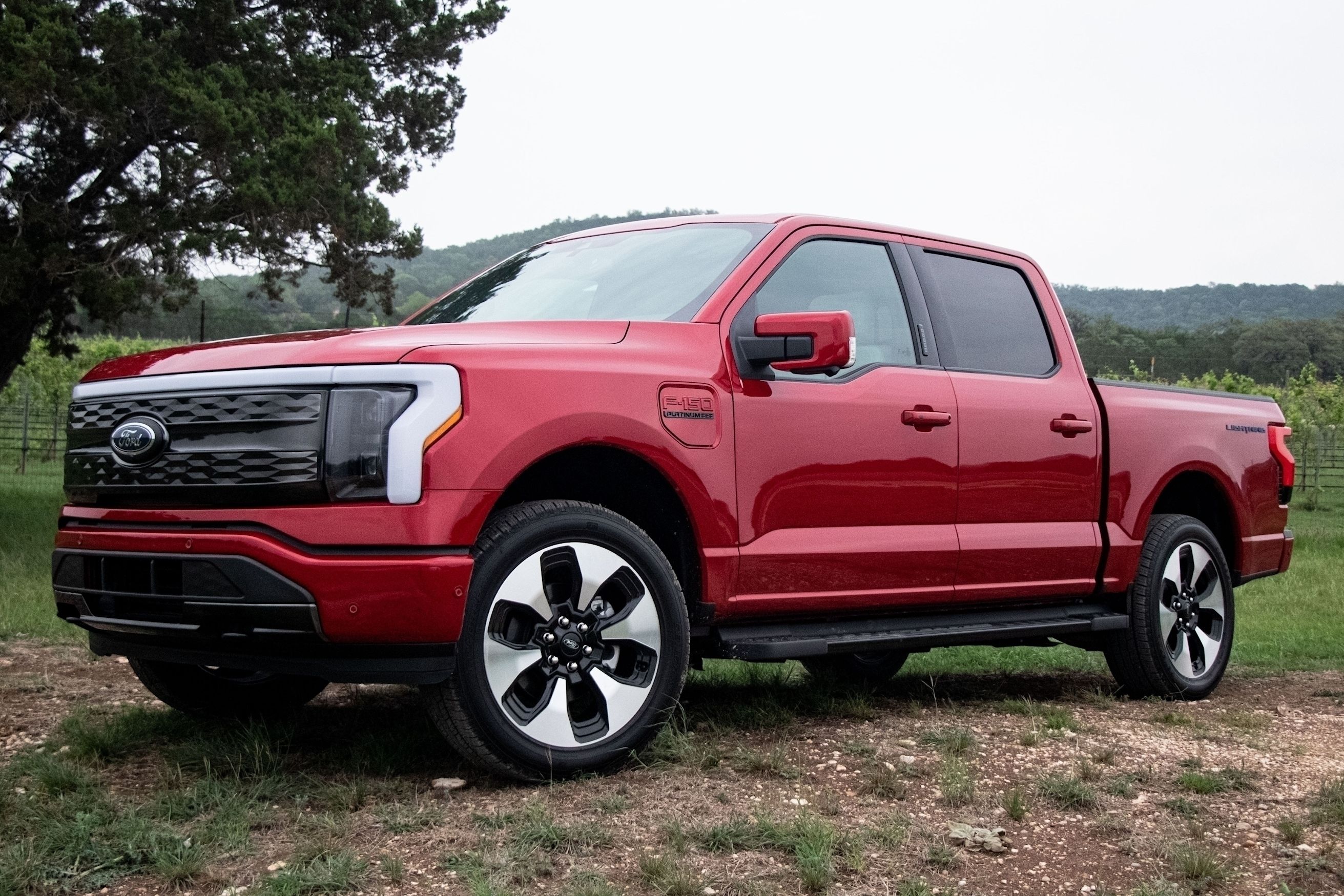Debate Heats Up: Car Dealers And The Future Of EV Mandates

Table of Contents
The Impact of EV Mandates on Car Dealerships
EV mandates are significantly altering the business model of car dealerships, presenting both challenges and opportunities. The changes are multifaceted and require proactive adaptation.
Reduced Sales of Internal Combustion Engine (ICE) Vehicles
- Decreased Revenue: As EV mandates take effect, sales of gasoline and diesel-powered vehicles (ICE vehicles) are projected to decline significantly. This directly impacts dealership revenue streams, potentially leading to substantial financial losses.
- Profitability Concerns: Dealerships heavily reliant on ICE vehicle sales face a critical challenge in maintaining profitability. Reduced margins on EVs, coupled with decreased sales volume, could threaten their financial stability.
- Job Security: The shift to EVs could lead to job losses within dealerships, particularly in service departments accustomed to ICE vehicle maintenance. Reskilling and retraining programs will become essential.
- Sales Projections: Industry analysts predict a steep decline in ICE vehicle sales in the coming years, varying by region and government regulations. For example, some regions anticipate a 50% reduction within the next decade. Dealerships must adapt their business strategies to account for this change.
- Real-World Examples: Several dealerships in regions with aggressive EV mandates are already reporting decreased profits and struggling to meet financial targets. This highlights the urgency of the situation.
Increased Investment in EV Infrastructure and Training
- Upfront Costs: Adapting to the EV market requires substantial investment in new infrastructure. This includes installing fast-charging stations, acquiring specialized EV service equipment, and upgrading facilities to handle high-voltage systems.
- Staff Training: Dealership staff will require extensive training on EV technology, maintenance, and repair. This includes understanding battery systems, charging infrastructure, and unique diagnostic procedures.
- Resource Constraints: Smaller dealerships with limited resources may face significant challenges in meeting these investment and training requirements, potentially putting them at a competitive disadvantage.
- Government Incentives: Governments are exploring various incentives to encourage dealership investment in EV infrastructure. These could include tax credits, grants, or subsidized loans, helping to offset the high initial costs.
Changes in Sales and Service Models
- Subscription Services: The EV market is seeing a rise in subscription models, offering customers alternative ownership options. Dealerships need to adapt their sales strategies to accommodate these new models.
- Online Sales: The increased adoption of online vehicle purchasing platforms will necessitate a shift towards digital sales processes, requiring new skills and technologies within dealerships.
- Evolving Sales Roles: The role of the salesperson will evolve, requiring expertise in EV technology and its benefits, rather than solely focusing on traditional engine specifications.
- Digital Integration: Dealerships must seamlessly integrate online tools and digital technologies into their sales and service processes to cater to the evolving consumer preferences in the EV market.
Arguments For and Against EV Mandates
The debate surrounding EV mandates is complex, with strong arguments on both sides.
Pro-Mandate Arguments: Environmental Benefits, Public Health, Energy Security
- Environmental Protection: EV mandates significantly reduce greenhouse gas emissions, contributing to climate change mitigation and cleaner air.
- Improved Public Health: Reduced air pollution from vehicles improves public health, reducing respiratory illnesses and other health problems associated with vehicle emissions.
- Energy Security: Increased EV adoption reduces reliance on foreign oil, enhancing national energy security and independence.
- Government Support: Many government reports and studies strongly support EV mandates, highlighting the significant environmental and public health benefits.
Anti-Mandate Arguments: Economic Concerns, Consumer Choice, Technological Readiness
- Economic Impact: Critics argue that EV mandates could harm the automotive industry and lead to job losses in the short term. Concerns exist about the economic viability of transitioning to EVs.
- Limited Consumer Choice: Mandates could restrict consumer choice, potentially limiting access to preferred vehicle types and impacting the affordability of transportation.
- Charging Infrastructure Limitations: Insufficient charging infrastructure remains a major obstacle to widespread EV adoption, especially in rural areas.
- Battery Technology Concerns: Concerns exist regarding battery lifespan, cost, and ethical sourcing of materials for EV batteries.
- Industry Opposition: Industry representatives and some consumer advocacy groups oppose mandates, citing concerns about market readiness and consumer affordability.
Finding a Balance: Collaboration and Solutions for a Successful Transition
A successful transition to EVs requires collaboration between governments, manufacturers, and dealerships.
Government Support and Incentives for Dealerships
- Financial Incentives: Governments can provide crucial support through tax credits, grants, and low-interest loans to help dealerships invest in EV infrastructure and training.
- Successful International Models: Studying successful government-supported programs in other countries can offer valuable insights into effective strategies.
Industry Collaboration and Training Initiatives
- Joint Training Programs: Collaboration between manufacturers and dealerships is crucial to develop effective training programs for EV maintenance and sales.
- Knowledge Sharing: Professional organizations play a crucial role in facilitating knowledge sharing and best-practice adoption within the industry.
Consumer Education and Awareness Campaigns
- Addressing Concerns: Public awareness campaigns are essential to address consumer concerns and misconceptions about EVs, highlighting their benefits and addressing range anxiety and charging infrastructure limitations.
- Dealership Involvement: Dealerships play a key role in educating consumers about EV technology, dispelling myths, and building consumer confidence.
The Future of Car Dealerships in the Age of EV Mandates
The debate around EV mandates is complex, balancing environmental goals with economic realities. The impact on car dealerships is undeniable, requiring adaptation and investment. However, with government support, industry collaboration, and consumer education, a successful transition is possible. The future of car dealerships lies in embracing the change, investing in EV infrastructure and training, and adopting new sales and service models. The debate around EV mandates is far from over. Stay informed about the evolving landscape of electric vehicles and participate in the conversation to shape the future of car dealerships and the automotive industry. Understanding the implications of electric vehicle mandates is crucial for both dealerships and consumers alike.

Featured Posts
-
 Child Saved By Quick Acting Suffolk Boy At Great Wolf Lodge
May 18, 2025
Child Saved By Quick Acting Suffolk Boy At Great Wolf Lodge
May 18, 2025 -
 Trump Springsteen Feud Rockers Treasonous Accusation And Trumps Response
May 18, 2025
Trump Springsteen Feud Rockers Treasonous Accusation And Trumps Response
May 18, 2025 -
 Amanda Bynes Returns To The Public Eye With 50 Only Fans Subscription
May 18, 2025
Amanda Bynes Returns To The Public Eye With 50 Only Fans Subscription
May 18, 2025 -
 Analyzing Funny Little Fears A Critical Review Of Damiano Davids Album
May 18, 2025
Analyzing Funny Little Fears A Critical Review Of Damiano Davids Album
May 18, 2025 -
 Rethinking Retirement Evaluating The Risks Of A New Investment
May 18, 2025
Rethinking Retirement Evaluating The Risks Of A New Investment
May 18, 2025
Latest Posts
-
 The Implications Of Stephen Millers Potential Nsa Appointment
May 18, 2025
The Implications Of Stephen Millers Potential Nsa Appointment
May 18, 2025 -
 Is Stephen Miller The Right Choice For A National Security Position
May 18, 2025
Is Stephen Miller The Right Choice For A National Security Position
May 18, 2025 -
 The Stephen Miller Nsa Speculation A Closer Look
May 18, 2025
The Stephen Miller Nsa Speculation A Closer Look
May 18, 2025 -
 Will Stephen Miller Be Trumps Choice For National Security Advisor
May 18, 2025
Will Stephen Miller Be Trumps Choice For National Security Advisor
May 18, 2025 -
 New Jersey Mikes Subs Restaurant Opens In Galesburg
May 18, 2025
New Jersey Mikes Subs Restaurant Opens In Galesburg
May 18, 2025
